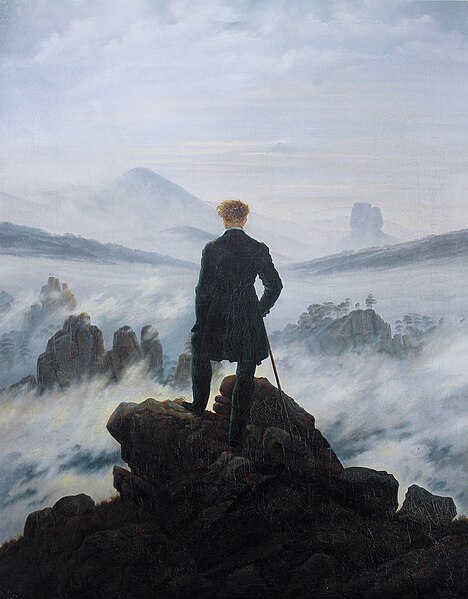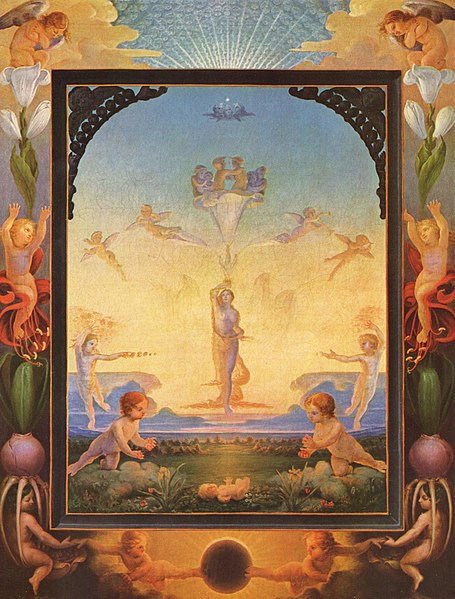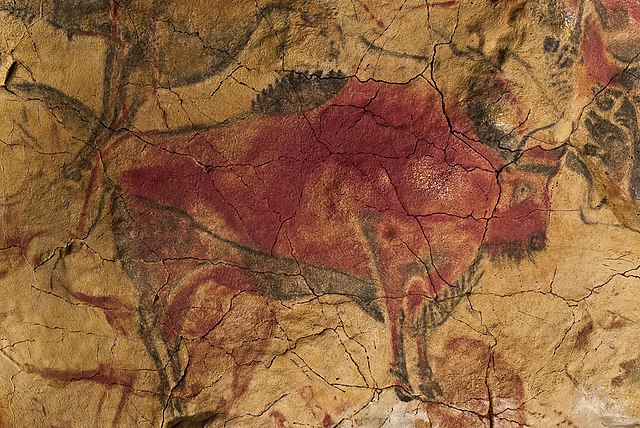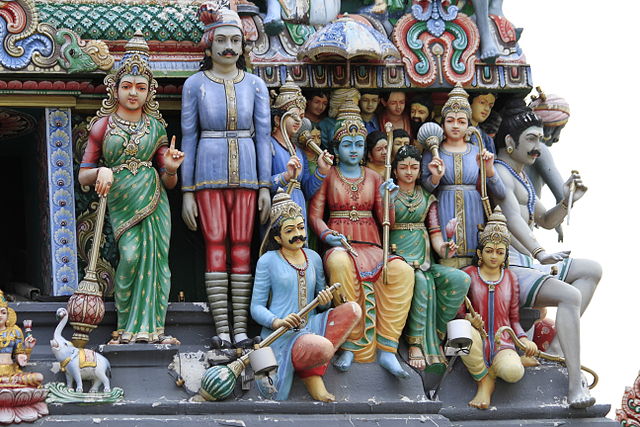Romanticism was an artistic and intellectual movement that originated in Europe towards the end of the 18th century. The purpose of the movement was to advocate for the importance of subjectivity, imagination, and appreciation of nature in society and culture during the Age of Enlightenment and the Industrial Revolution.
Caspar David Friedrich, Wanderer above the Sea of Fog, 1818
Eugène Delacroix, Death of Sardanapalus, 1827, taking its Orientalist subject from a play by Lord Byron
Philipp Otto Runge, The Morning, 1808
William Blake, The Little Girl Found, from Songs of Innocence and Experience, 1794
Culture is a concept that encompasses the social behavior, institutions, and norms found in human societies, as well as the knowledge, beliefs, arts, laws, customs, capabilities, and habits of the individuals in these groups. Culture is often originated from or attributed to a specific region or location.
Human symbolic expression developed as prehistoric humans reached behavioral modernity.
Religion and expressive art are important aspects of human culture.
Germans marching during a folk culture celebration
Pygmy music has been polyphonic well before their discovery by non-African explorers of the Baka, Aka, Efe, and other foragers of the Central African forests, in the 1200s, which is at least 200 years before polyphony developed in Europe. Note the multiple lines of singers and dancers. The motifs are independent, with theme and variation interweaving. This type of music is thought to be the first expression of polyphony in world music.








